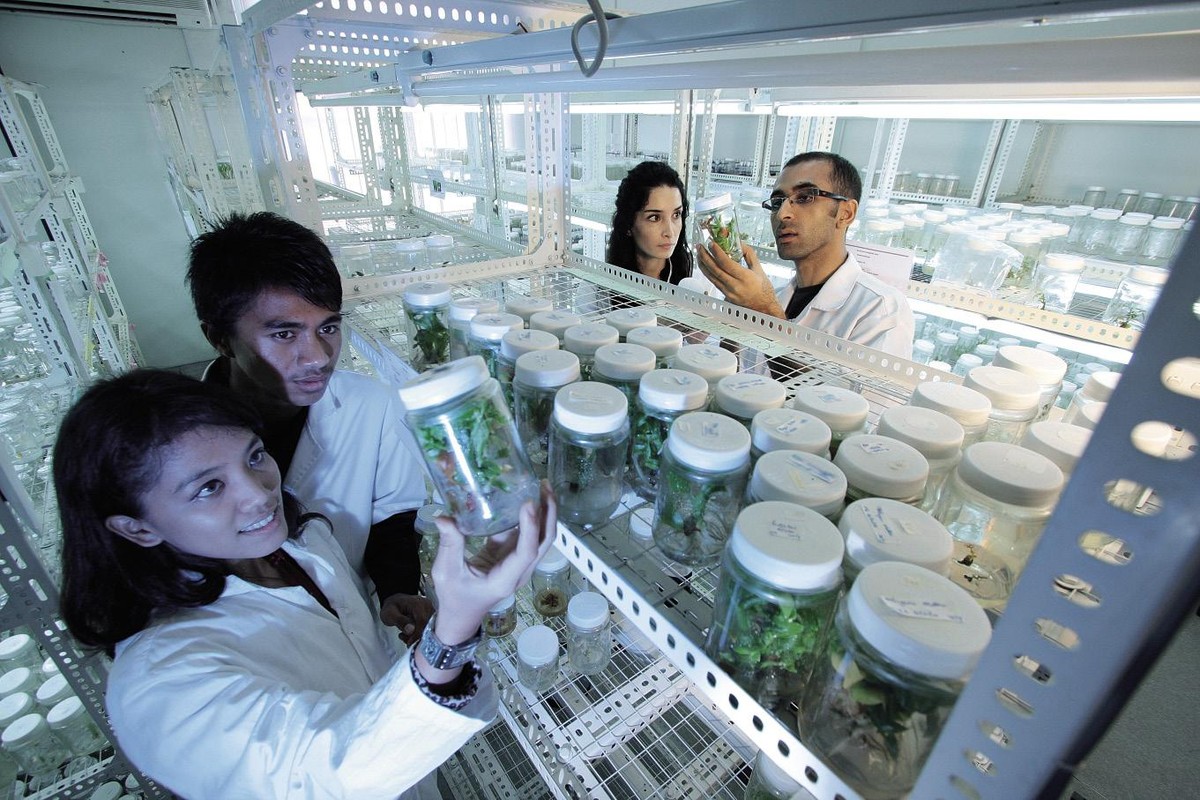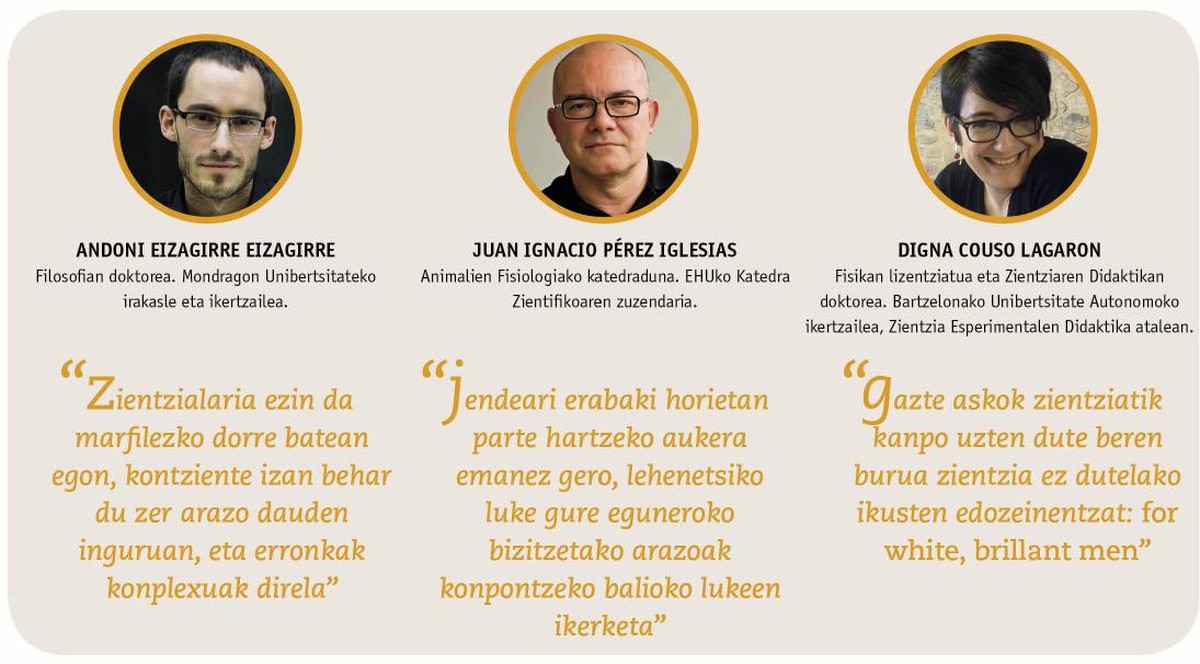Science for the people and the people
Scientific and technological knowledge decisively influences the social and economic progress of society. Because depending on the direction of science, society will have some resources or others to advance. This leads to a basic question: In the direction of science should citizens take the word and the decision, or should they be passive spectators because scientific decisions are made “experts”?
Europe has left little room for debate, showing a clear attitude: science must be for society and, moreover, for society. The idea of “With society” has opted for the decentralization of science, recognizing that knowledge is not alone in laboratories. It has established that science must be dialogued with other agents of society, because it also recognizes knowledge to them: technological centers, social movements, patient associations, etc. For example, patients may not have knowledge similar to scientists, but their experiences can help scientists decide what to pay attention to.
However, the idea of “society” refers to the results: science must be oriented to respond to the great challenges that society has at all times. It has also marked the main challenges it faces: climate change, scarcity of resources, aging of society and energy problems. The European Union believes that responsible research and innovation, called RRI (Responsible Research and Innovation), guarantees these two aspects.
Science in question
“All this implies a cultural change, a new way of understanding science: it occurs in dialogue with the different sciences. The scientist cannot be in an ivory tower, but must be aware of the problems that surround him and that the challenges are complex,” said Dr. Andoni Eizagirre, PhD in Philosophy. Eizagirre is a professor and researcher at Mondragon Unibertsitatea and studies the research projects that are presented to the European calls to see if scientists are assuming the RRI vision. “If we recognize, and this has to do with social change, that universities and former research centers have lost the monopoly of knowledge, that is, that from the university is decentralizing knowledge to other areas (whether hospitals, non-governmental organizations…), the logical thing will be that we will collaborate with them. If we generate the procedure of creating science in dialogue with other agents, we identify their concerns and problems... surely that will facilitate that the results coincide with the concerns, desires and expectations of citizens.”
However, this vision, and especially the one conditioned by the funding of scientific research itself, has provoked the reaction of many scientists. But what is the problem: That Europe is ahead of scientists and that researchers need time to get used to the changes, or that science itself is endangering?
“It is not an easy topic,” said Juan Ignacio Pérez Iglesias, professor of Animal Physiology and director of the Scientific Chair of the UPV. “I am critical of RRI. I think we have reason to worry about this new strategy, not just for scientists, but for society in general. That can be paradoxical, because the goal is for science to be responsible, but I see it that way. In fact, citizen perception of research and science is known and prioritizes what is called applied research, not basic research. People do not value knowledge by the intrinsic value of knowledge, but by its applications.”
“I am sure – added Pérez Iglesias – if we were to ask on the street ‘hey, what should we investigate?’ and if we were to say topics like biotechnology, nuclear energy, solid matter physics, cosmology, cancer, antibiotics, etc., people would say yes to antibiotics, cancer and environmental aspects. I would probably say no to nuclear energy and biotechnology, especially if biotechnology were accompanied by GMOs. And finally, I would say that cosmology, the physics of solid matter, the physical particles, the intracellular transport system, etc. would not be investigated, or at least they would not put them in the top positions.”
“If from now on the criterion was to despise basic research and focus it on applied research, we would be lost because the basis of the application is basic research. Science and knowledge, and culture itself, would go fast,” he added. “If people are given the opportunity to participate in these decisions, the RRI would not behave responsibly, because it would prioritize research that in its view would serve to solve the problems of our daily lives. I have heard the politicians: ‘No, now, in times of crisis, it is not time to investigate luxury issues. Now is the time to research into applied accounts.’ It seems to many people that basic research is a luxury issue.”
Science, own republic?
“There’s another debate at the base,” believes Andoni Eizagirre. “Many say that science has to be in a free field, it doesn’t have to have any influence. They say: ‘We are a republic of our own. As a scientific community we have our own rules: what it is to do science well, what it is to do responsible science, all this is fixed with our internal norms. In addition, the knowledge we have, so there is no need to open it. If not, knowledge is relativized and that is dangerous.’ There is great suspicion about the RRI.”
“Researchers of great tradition in basic research claim that RRI will be a passing fad, but I don’t believe. I think RRI has come to stay,” added Eizagirre. “In the end a cultural change is taking place. In some countries it is already seen that in laboratories interdisciplinarity is really being promoted. It may be added nuances or limited to some areas, but it will continue.”
In fact, science provides knowledge, but sometimes it can have unforeseen or undesirable impacts that can cause a sense of risk or uncertainty in the population. “The RRI proposes a new way of understanding science, society and the relationship between both: sharing responsibilities and learning each other,” added Andoni Eizagirre.
But he also sees limits: After analyzing the research projects presented to the European calls, he found that the industry is the one that is most easily adapting to the RRI vision, since the industrialists themselves argue that they are opening the procedure to other agents (usually from other companies) and that their research is oriented. “That’s why another criticism of the RRI is that it is very economistic.”

Science needs diversity
Digna Couso holds a degree in Physics and a PhD in Didactics of Science and is currently a researcher at the Autonomous University of Barcelona in the Didactics of Experimental Sciences section. Consider that science has another big challenge if it has to be responsible: “The profile of people working in science and engineering is very homogeneous: there is a very small ethnic diversity, a very low gender diversity, a diversity in terms of socioeconomic level… and that is a problem. Lack of diversity causes poverty in terms of economic prospects and losses. The economic cost of not incorporating a gender perspective into scientific research has been investigated. For example, it has occurred that after 20 years of drug research, socialization and drug awareness is very harmful to women with menopause. Despite having studied for 20 years, it has not been taken into account that this drug is also for women… Another challenge posed by RRI is that science needs a review of gender.”
Society away from science
To ensure diversity and citizen participation in science it is necessary to foster scientific culture and critical vision in society. In fact, today, society shows a rather passive attitude towards the advances of science. What is the problem that citizens have little scientific knowledge?
According to Digna Couso, the fact that society and young people feel away from science is not due to lack of knowledge. Put the challenge of education elsewhere: “More than students know about science is whether the school takes care of students’ curiosity, creativity and critical attitude. With a solid foundation, we can continue to learn throughout life. What really conditions us is the perception of our abilities; for example, to think that in science we are not good. That does limit us. And many young people exclude themselves from science. They don't see science for anyone: for white, brillant men. For bright white men.”
“We are very concerned about the vision of students of science, the perception of a culture of excellence in science. They believe that science is only for those who are excellent, for those who are very intelligent, understood intelligence in a very limited way, with great capacity for calculation and abstraction. This perception of science is transmitted by teachers and society, and scientists also contribute to it. But there are people with other capabilities who can contribute as much or more.”
Couso stressed that if we want diversity in science we have to focus on girls. “Studies show that girls have lower self-esteem in their scientific and technological activity. A girl who draws 9 in English and 6 in mathematics believes that she is insufficient in mathematics, but a boy who has drawn 6 in mathematics and 4 in English thinks she is very good in mathematics. This perception has something to do with capacity. Girls need to be told that there are quite good science, that they need science.”







